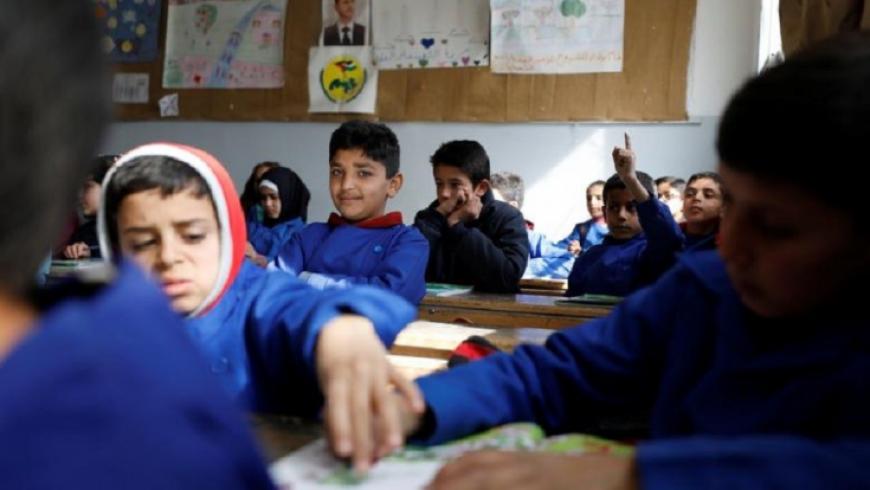Two weeks into the new school year, public schools affiliated with the Syrian regime are grappling with a severe shortage of teaching staff. This predicament has forced some school administrations, such as the Hassan bin Thabet School for Basic Education in Damascus, to resort to social media advertisements in a bid to recruit teachers.
A concerned staff member from the school took to social media with a plea: “We are facing a shortage of teachers in various subjects including physics, sociology, Arabic, English, French, and religion. Anyone willing to teach in our school within these disciplines, even if they are university students pursuing the same specialization and have not yet graduated, please reach out.”
This post underscores a pervasive issue plaguing almost all government schools in Damascus, as they struggle to secure specialized educators. Um Ammar reveals that her daughter, currently in the fourth grade, has been attending school for two weeks without an English teacher. She further laments, “The quality of the teachers in the remaining subjects is also subpar.”
Um Ammar refrains from disclosing the school’s name due to her numerous complaints, which have gone unanswered. She notes that the response she repeatedly receives is, “All schools in Syria are the same.”
A teacher working in one of the Damascus schools expressed to Syria TV that a career in teaching has become futile, particularly for experienced educators who can earn significantly more in private schools and through private tutoring. Their government sector salary barely covers transportation and rent expenses.
“Some teachers have left Syria, while others have transitioned into different professions like taxi drivers or working in food stores. Some have remained in the private sector,” the teacher shared.
The teacher shed light on the challenging working conditions in the government sector, where there is a lack of heating during winters, intermittent electricity supply, and the daunting task of imparting knowledge to over 50 students in a single classroom. The monthly income is meagre, hardly deserving to be called a salary. Moreover, teachers face undue pressure, threats, and barriers to resigning. These circumstances are driving educators to leave the profession, prioritizing survival over any potential consequences or accountability.
Consequences for an entire generation
While some teachers may not be concerned about the consequences, the impact of this shortage is deeply felt by families, as highlighted by Siham, who has a child in the third grade. She shared her dismay, saying, “The teacher responsible for teaching my daughter Arabic and other subjects often makes spelling and arithmetic mistakes. When I visited the school to voice my concerns, I met her and was surprised to find that she is barely 20 years old and is currently a student at the Faculty of Mass Communication. The school had no choice but to contract with her due to the shortage of qualified staff.”
In the case of English and French subjects, some schools have resorted to hiring university students from various fields who have not even graduated yet. These inexperienced educators sometimes convey incorrect information to the students, posing a serious threat to their future prospects. Siham, an information engineer, emphasized this concern, stating, “Perhaps if I were not educated and did not have a strong command of the language, my daughter would have been misinformed. I fear for the generation currently being raised amidst such errors. We risk having a generation that cannot write properly in their native language and possesses inaccurate knowledge about various subjects.”
The director of one school succinctly outlines the reasons behind the shortage of specialized teachers. These factors include the exceptionally low salary offered, which fails to cover transportation costs, the allure of institutes and private schools that can attract qualified teachers with better compensation, and the desire of some educators to work independently by offering private lessons. Additionally, factors such as emigration and prolonged military service, whether as compulsory or reserve duty, further exacerbate the shortage of qualified teachers in the public education system.
This article was translated and edited by The Syrian Observer. The Syrian Observer has not verified the content of this story. Responsibility for the information and views set out in this article lies entirely with the author.


